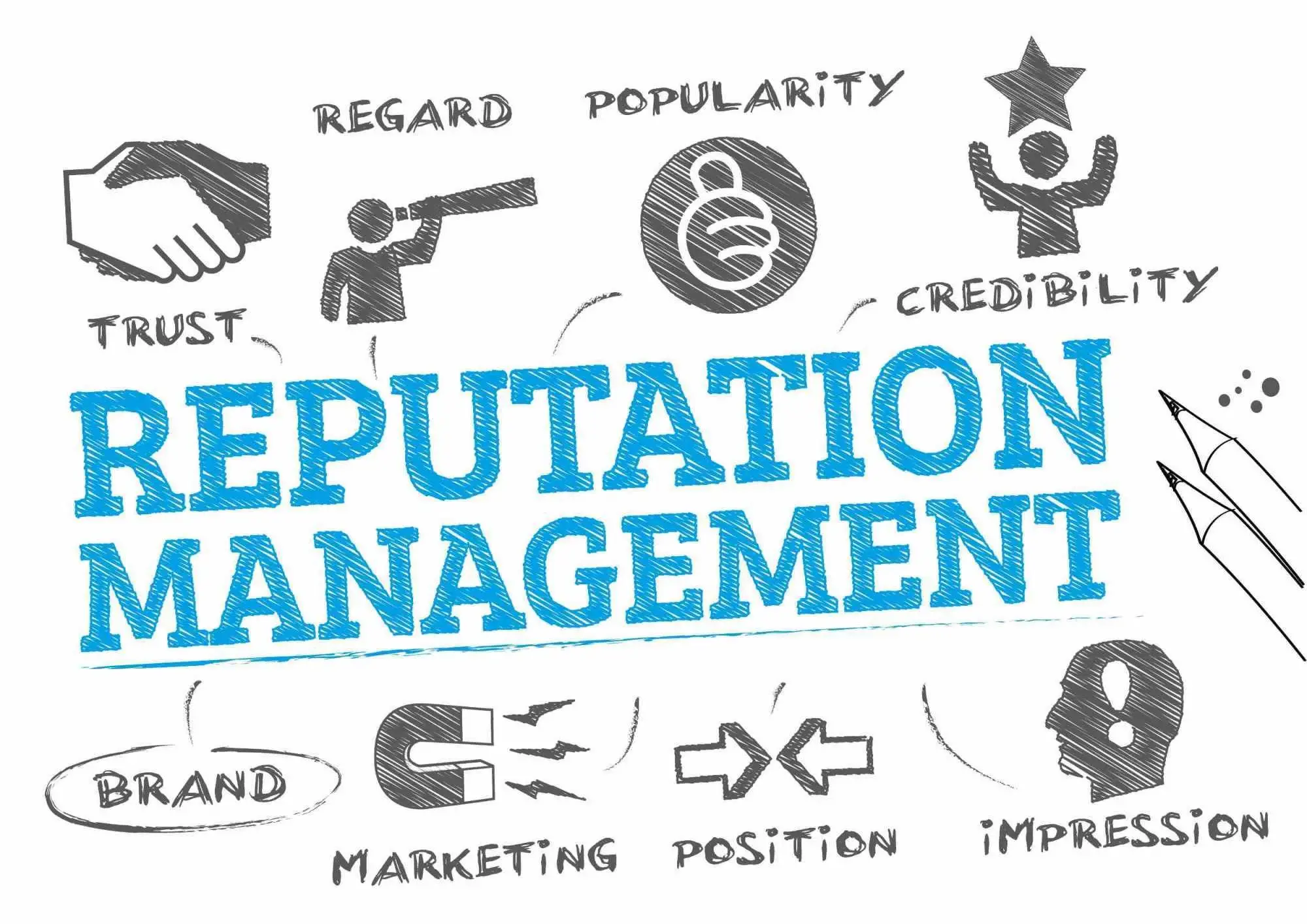In today’s digital age, a company’s online reputation can make or break its success.
With the rise of social media and online reviews, potential customers can easily access information about your brand and form opinions based on what they find. That’s why effective reputation management is important for businesses of all sizes and industries.
At VH-info, we understand the importance of maintaining a positive online presence for SaaS companies.
As experts in link building and SEO, we’ve helped numerous brands improve their online reputation and attract more customers. In this article, we’ll share 13 proven tips to help you manage your brand’s reputation effectively.
What is Reputation Management?

Reputation management is the practice of monitoring, influencing, and controlling the public perception of a brand or individual. It involves various strategies and techniques to maintain a positive image, mitigate negative feedback, and build trust with customers and stakeholders.
Why is Reputation Management Important?

A strong brand reputation can lead to increased customer loyalty, higher sales, and better search engine rankings. On the other hand, a negative reputation can drive potential customers away and damage your bottom line.
Proactively managing your online reputation can help you:
- Build trust and credibility with your target audience
- Attract new customers and retain existing ones
- Improve your search engine visibility
- Gain valuable insights into customer needs and preferences
- Mitigate the impact of negative reviews or comments
Tips On Effective Reputation Management

Understand Your Current Reputation
The first step in effective reputation management is to assess your current online presence. Conduct a thorough audit of your website, social media profiles, and online reviews to understand how your brand is perceived by others. Use tools like Google Alerts and social listening platforms to monitor mentions of your brand name and relevant keywords.
Align Your Online Presence With Your Intended Image
Ensure that your website, social media profiles, and other online assets accurately reflect your brand’s values, mission, and unique selling proposition. Use consistent branding elements like logos, colors, and messaging across all platforms to create a cohesive brand image.
Manage Your Social Media
Social media platforms are powerful tools for engaging with customers and building brand awareness. However, they can also be a source of negative feedback and reputation damage if not managed properly.
Develop a social media strategy that aligns with your overall reputation management goals, and assign dedicated team members to monitor and respond to comments and messages.
Regularly Monitor Your Brand’s Online Presence
Monitoring your online reputation is an ongoing process that requires regular attention. Set up alerts for your brand name and relevant keywords, and check your social media mentions and online reviews daily. Use reputation management software to streamline the monitoring process and gain valuable insights into customer sentiment.
Respond to Customer Reviews
Online reviews can significantly impact your brand’s reputation, as potential customers often rely on them to make purchasing decisions. Respond to both positive and negative reviews promptly and professionally, addressing any concerns and thanking customers for their feedback.
Use negative reviews as an opportunity to demonstrate your commitment to customer satisfaction and make necessary improvements.
Create and Share Quality Content
Creating and sharing valuable, informative content is an effective way to build thought leadership and establish your brand as an authority in your industry.
Develop a content marketing strategy that focuses on topics relevant to your target customers, and distribute your content across various media channels like your website, social media, and industry publications.
Be Consistent
Consistency is key when it comes to building a strong brand reputation.
Ensure that your messaging, tone, and visual elements are consistent across all touchpoints, from your website and social media profiles to your customer service interactions and marketing materials. Inconsistency can confuse customers and undermine trust in your brand.
Engage With Followers, Colleagues, and Customers
Engaging with your audience is important for building relationships and fostering customer loyalty.
Respond to comments and messages on social media, participate in industry discussions, and seek out opportunities to collaborate with influencers and thought leaders in your field.
Actively engaging with your community can demonstrate your commitment to customer satisfaction and gain valuable insights into their needs and preferences.
Address Negative Comments or Reviews
Negative feedback is an inevitable part of doing business, but how you handle it can make all the difference in your reputation management efforts.
When responding to negative comments or reviews, remain professional and empathetic, acknowledging the customer’s concerns and offering solutions where possible. Avoid getting defensive or engaging in public arguments, as this can further damage your reputation.
Continue to Monitor Your Online Reputation
Reputation management is an ongoing process that requires continuous monitoring and adjustment. Regularly assess your online presence, track your progress, and adapt your strategies as needed to maintain a positive brand image.
Use analytics tools to measure the impact of your reputation management efforts on key metrics like website traffic, social media engagement, and customer satisfaction.
Improve the Customer Experience
Ultimately, the best way to build a positive reputation is to deliver exceptional customer experiences consistently. Focus on understanding your target customers’ needs and preferences, and strive to exceed their expectations at every touchpoint.
Solicit feedback regularly and use it to keep making improvements to your products, services, and customer support.
Hire Professional Online Reputation Management Services
If managing your online reputation feels overwhelming, consider hiring a professional reputation management service. These experts can develop and implement a tailored strategy to boost your brand’s visibility and credibility online.
They leverage skills in SEO, content marketing, and social media management to monitor your online presence, address negative feedback, and promote positive content.
With their help, you can focus on running your business while they handle the complexities of maintaining a strong online reputation.
FAQ’s:
How Often Should I Audit My Online Reputation?
It’s recommended to conduct a thorough audit of your online reputation at least once a quarter. However, monitoring your brand mentions and reviews should be an ongoing process, with daily checks to ensure you can respond promptly to any issues or opportunities that arise.
Can Social Media Influence My Business’s Reputation?
Absolutely. Social media platforms are powerful tools for shaping public perception of your brand. Positive interactions and content shared on social media can boost your reputation, while negative comments or mishandled customer service issues can quickly spread and damage your image. That’s why a strong social media presence and proactive reputation management are essential.
What is the Best Way to Respond to a Negative Review?
When responding to a negative review, it’s important to remain professional, empathetic, and solution-oriented. Acknowledge the customer’s concerns, apologize for any inconvenience, and offer to resolve the issue offline if possible.
Avoid getting defensive or engaging in public arguments, which can further damage your reputation. Instead, focus on demonstrating your commitment to customer satisfaction and continuous improvement.
How Can I Encourage My Customers to Leave Positive Feedback?
One of the most effective ways to encourage positive reviews is to provide exceptional customer experiences consistently. Exceed your customers’ expectations with high-quality products, responsive customer service, and personalized interactions.
You can also actively seek feedback by sending follow-up emails after purchases, including review links on your website and receipts, and incentivizing customers to share their experiences with discounts or loyalty rewards.
Conclusion
In today’s digital landscape, effective reputation management is no longer optional – it’s a critical component of any successful business strategy.
Understanding your current reputation, aligning your online presence with your intended image, actively monitoring and responding to feedback, and continuously improving the customer experience can help you build a strong, positive brand reputation that drives long-term growth and success.
At VH-info, we’re committed to helping SaaS companies navigate the complex world of online reputation management.
Our expert team and comprehensive link-building services can help you boost your brand’s visibility, credibility, and customer trust. Contact us today to learn more about how we can support your reputation management efforts and take your online presence to the next level.



